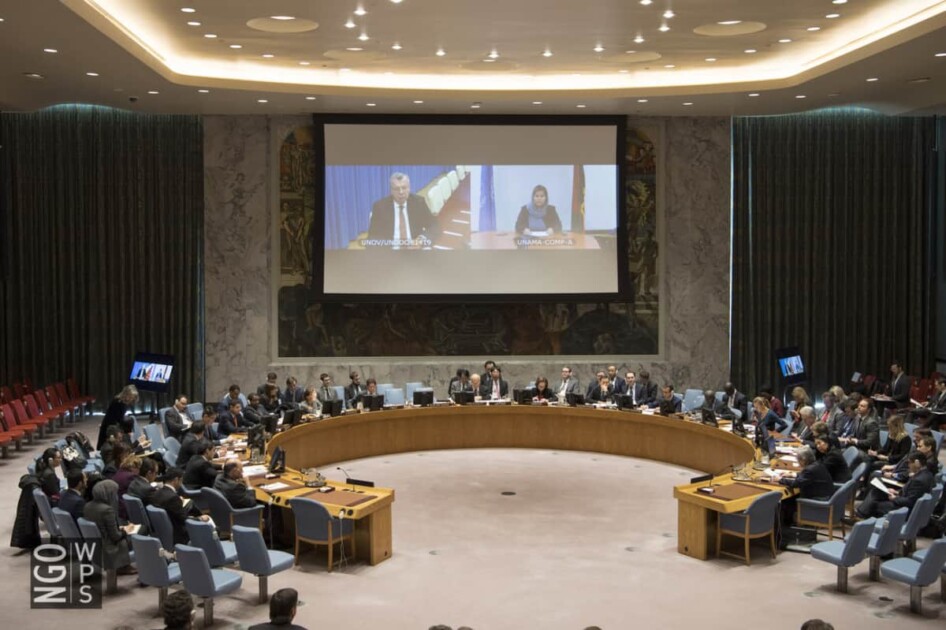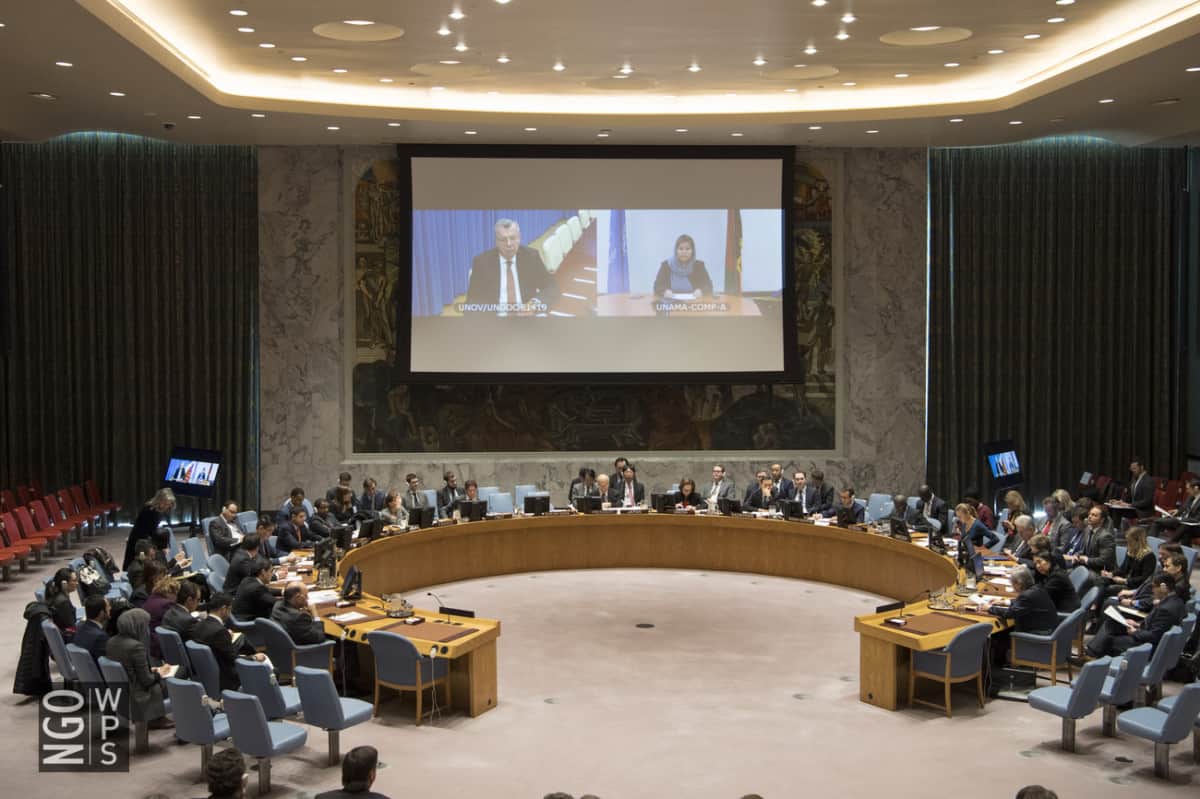Democratic Republic of the Congo
Women in the Democratic Republic of Congo continue to face widespread sexual violence, disease, and displacement in conflict situations arising from clashes between dozens of armed groups. Often, sexual violence and rape are used as terror tactics and weapons of war, and despite the ratification of the Convention on the Elimination of All Forms of Discrimination against Women (CEDAW) and the Women’s Platform for the Peace, Security and Cooperation Framework, women are still largely underrepresented in peacebuilding efforts. Additionally, women activists face rape as a form of torture by government actors who disagree with their political activity. The United Nations Organization Stabilization Mission in the DRC (MONUSCO) aims to provide protection for civilians, including reducing the threat of armed groups perpetrating sexual and gender-based violence, monitoring and reporting on sexual violence and ensuring women’s participation in stabilization and national political dialogue.
Democratic Republic of the Congo
Women in the Democratic Republic of the Congo continue to face widespread sexual violence, disease, and displacement in conflict situations arising from clashes between dozens of armed groups. Often, sexual violence and rape are used as terror tactics and weapons of war, and despite the ratification of the Convention on the Elimination of All Forms of Discrimination against Women (CEDAW), and the Women’s Platform for the Peace, Security and Cooperation Framework, women are still largely underrepresented in peacebuilding efforts.
Additionally, women activists face rape as a form of torture by government actors who disagree with their political activity. The United Nations Organization Stabilization Mission in the DRC (MONUSCO) aims to provide protection for civilians, including reducing the threat of armed groups perpetrating sexual and gender-based violence, monitoring and reporting on sexual violence and ensuring women’s participation in stabilization and national political dialogue.
Current and Past Recommendations to the UN Security Council (Monthly Action Points)
In addition to COVID-19, the population of DRC is facing multiple public health challenges alongside ongoing violence in eastern DRC (OHCHR, UNHCR), and widespread displacement. In 2019, 1.7 million people fled violence in DRC, with 5 million people overall internally displaced; the highest numbers in Africa and second only to Syria globally (IDMC). This context puts women migrants and women who work in the informal sector particularly at risk. Further, the prisons in DRC, which are, in some cities, at 600% capacity, must urgently release detainees who have not been convicted of any crime or are awaiting trial, and further ensure food, medical care, and basic sanitation is improved to avoid a potential outbreak (HRW). As the Security Council discusses the recent report of the UN Organization Stabilization Mission in the Democratic Republic of the Congo (MONUSCO), issues related to women’s meaningful participation should be discussed alongside critical protection concerns, including the extent to which protection efforts are gender-responsive. There has been a noted increase in GBV perpetrated by armed groups, as well as State forces, and women continue to face barriers to accessing justice, reparations, and victim support services (CEDAW/C/COD/CO/8). The protection of women and girls is not taken into account by MONUSCO and since its Gender Office has moved from Kinshasa to Goma, actions concerning gender and the protection of women and girls have been nearly nonexistent. A draft law on reparations for victims of GBV lapsed and women’s CSOs have not been consulted on any further legislative efforts to address the gaps in victim reparations (Madre). In 2019, the UN SRSG on Sexual Violence in Conflict visited centers in DRC that provide medical and psychological care to survivors of GBV (MONUSCO). Civil society organizations reported to her that “sexual violence continues to be systematically planned to destroy women” and “victims in remote areas lack access to services” (SRSG on SVC). There is an urgent need to address the lack of timely and adequate multi-sectoral assistance for survivors of GBV, including medical and psychosocial assistance, and legal support. The Council should request updates from senior leadership on MONUSCO’s efforts to address GBV, including on providing services to survivors and including specifically the extent to which the mission has consulted with, or plans to consult with, women’s CSOs in supporting the Government to pass a comprehensive reparations law that eliminates barriers to reparations for survivors/victims of GBV, ensuring full compliance with court-ordered reparations and assisting the Government to add domestic violence and marital rape into its penal code. Further, the Council should request updates on MONUSCO’s support to local women’s groups in providing services to address GBV and domestic violence that has been increasing due to COVID-19 containment measures, including comprehensive medical, psychosocial, legal, and socioeconomic assistance that is inclusive of persons with disabilities and LGBTIQ+ people (CEDAW/C/COD/CO/8). DRC is surrounded by nine contiguous countries with porous borders enabling the proliferation and circulation of small arms and light weapons (SALW), which exacerbates insecurity and GBV. Despite the existing sanctions regime, SALW continue to move across borders; the Council must ensure SALW is a priority in its discussions of the current situation.
Relevant Resources











